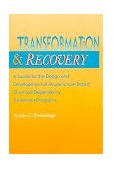Resources for Acupuncture in Chemical Dependency Treatment and Recovery

Is acupuncture compatible with harm reduction?
One way of thinking about the
5-point auricular acupuncture protocol is to realize that a person need
not even have a problem with alcohol or other drugs to benefit from the
treatment. Practitioners are often able to profoundly observe this when
they make community outreach presentations and give "sample treatments"
to criminal justice planners, administrators, or to line staff in public
health clinics and homeless centers. The treatment is very pleasant and
calming, especially for people who have a lot of stress and anxiety or
pressure in their work. Indeed, many successful acupuncture programs and
initiatives in the country are the result of a judge, legislator, or policymaker
receiving a treatment and experiencing a profound benefit. For people
who do outreach to promote acupuncture, the maxim is, "one needle
is worth a thousand words!"
Understanding this, one can
see why acupuncture had been successfully incorporated into many harm
reduction programs. For example, in residential geriatric settings, infectious
disease clinics, and centers that provide social services for people living
with AIDS, the treatment has been successfully integrated as a way of
helping people deal with "minor aches and pains," or with "stress,"
or for help in reducing the side effects of prescribed medications. Some
programs also have special opportunities for acupuncture treatment for
family members.
Even in alcohol and other drug
treatment programs, the flexibility of acupuncture when provided daily
in a barrier-free, outpatient setting, allows the program to adapt a philosophy
of "first things first." For example, it is the policy of many
clinics to encourage clients to "come as clean as they can."
Multiple drug users may be encouraged to take things "one step at
a time;" for example, a heavy drinker concerned about their excessive
use of marijuana might be encouraged to just work on the latter first.
Regardless of the setting where the acupuncture is provided, it is always advisable that that program be strongly linked or integrated with a comprehensive array of alcohol and other drug treatment and recovery services in the community.
previous
- Read FAQs in Sequence - next
Index of Articles - Links - Home
Scroll Down for More "Frequently Asked Questions"
How many clients can be treated at once?
How often do clients need to be treated?
How long to clients have to keep having treatments?
Does it matter what time of day the acupuncture is provided?
What
national organizations support acupuncture in treating addiction? What
resources are available to support us if we decide to do it?
Does
the acupuncture program have to include herbs or nutritional supplements?
What
is the history of how acupuncture began to be used in chemical dependency
treatment?
What
does the acupuncture clinic look like exactly?
How
much space and extra equipment will we need to do it?
How
do we clean or dispose of the needles after they are used?
How
does acupuncture fit with drug testing?
How
do we find and train people to do the needling?
Could
we just try it experimentally to make sure it's a good fit for us?
What
technical assistance will be required to start and maintain an acupuncture
component?
Is
it compatible with harm reduction?
Is
it compatible with 12-Step or abstinence-based treatment approaches?
Is
it appropriate for mandated or court-referred clients?
Is
it appropriate for adolescents?
Is
it appropriate for pregnant women?
Is
it appropriate for people with co-morbid psychiatric problems?
Is
it appropriate for people with HIV/AIDS?
Is
it appropriate in methadone programs?
Is
it appropriate in residential programs?
What
training is required for current program and administrative staff?
What are the steps we should take to add an acupuncture component?
